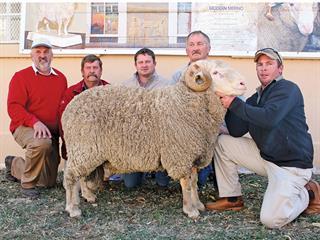ENVIRONMENTAL ASSOCIATION the Sierra Club has accused the Department of Agriculture of caving in to corporates, despite massive bee deaths. Due to mounting evidence that new seed chemical coatings are deadly to bees, and with Germany calling for their immediate suspension, the Sierra Club reaffirmed its call for a moratorium on specific chemical treatments to protect bees and crops until more studies can be done.
It cited Germany’s Federal Agricultural Research Institute as saying, “It can unequivocally be concluded that poisoning of the bees is due to the rub-off of the pesticide ingredient clothianidin from corn seeds.” The neonicotinoid chemicals, including clothianidin, are being used in a new way – as seed coatings. “Part of the equation in the is genetically engineered corn, as more corn seeds are being gene-spliced with a completely different species – a bacterium,” said Walter Haefeker of the German Beekeepers Association board of directors.
“Bayer and Monsanto recently entered into agreements to manufacture neonicotinic-coated, genetically engineered corn. It’s likely this will worsen the bee die-off problem.” – Alan Harman
European wool buyer sells its machinery
National Wool Growers Association chairperson Petrus de Wet has reacted with dismay to news that the A. Dewavrin Freres (ADF) wool processing factory in Bulgaria has sold its wool washing and combing machinery to UK’s Modiano. The machinery is some of the most modern in the industry “This is very bad news for Africa’s growers – we want more competition, not less,” he said.
“While ADF will continue to buy wool on the local market, this will be as an agent for other factories around the world. But fortunately, the company will continue to buy mohair as usual.” ADF was established in South Africa in 1911 as a wholly-owned subsidiary company of the Dewavrin Group, France. Its principal objective was the procurement of wool and mohair for the group’s French and Bulgarian processing mills. Over the years, ADF established itself and remains one of the leading players in the wool and mohair markets in South Africa.
De Wet believes the decision to sell was based on economics. “Bulgarian plant got off to a bad start due to Eastern European red tape and struggled to get into full production,” he explained. “Bulgarian government dragged its feet and delayed the process for three years before giving the company the green light.” According to Ona Viljoen of Cape Wools, ADF’s factory is not very old, having been erected when many of Europe’s plants were moved to the former Eastern Bloc countries in order to cut costs and compete with China.
“Apparently ADF’s machinery will now be moved to Modiano’s mills in the Czech Republic,” said Viljoen. Last season 1,2 million kilograms of SA greasy wool was exported to Bulgaria – 34% more than the 2005/06 figure, but 15% less than in 2006/07. “Modiano was the biggest buyer on the local as well as the Australian auctions last season, in terms of volume as well as value,” she confirmed. Viljoen added that while Australia has 81 registered buyers, of whom 50 buy more than 1 000 bales, Africa has a total of only nine registered wool buyers. – Roelof Bezuidenhout
Senwes awaits verdict
Grain trader CTH Trading is awaiting the Competition Tribunal’s ruling in their case against Senwes. Both parties wrapped up their arguments earlier this month. The Competition Commission previously found Senwes guilty of an abuse of dominance in the grain market and of engaging in an exclusionary act. In its referral of the case to the Tribunal, the Commission alleged that charged grain producers a lower storage price than traders such as CTH, on condition that the producers sold the grain to Senwes. This policy is said to have had a negative effect by blocking the supply of grain to independent traders. Additionally, the differentiated price policy is allegedly preventing or lessening competition by discriminating between producers and traders. – Annelie Coleman
Kruger visitors may be restricted
quotas for day visitors to the Kruger National Park may have to be reduced if impact studies currently under way show that the park gets too many visitors. Conservation authorities are concerned that the area south of the Sabie River gets too busy, which may impact negatively on wildlife, said park spokesperson Raymond Travers. n a recent incident, a leopard was reportedly killed by an electric fence when too many cars encroached on it, forcing it to retreat into the fence.
Travers said restricting visitors would not necessarily impact on tourism to the park, as bookings for accommodation would not be affected. Whatever the outcome of the studies, Travers has emphasised that conservation is the park’s priority and visitor numbers must be kept at levels that won’t interfere with wildlife or the environment. – Staff reporter









